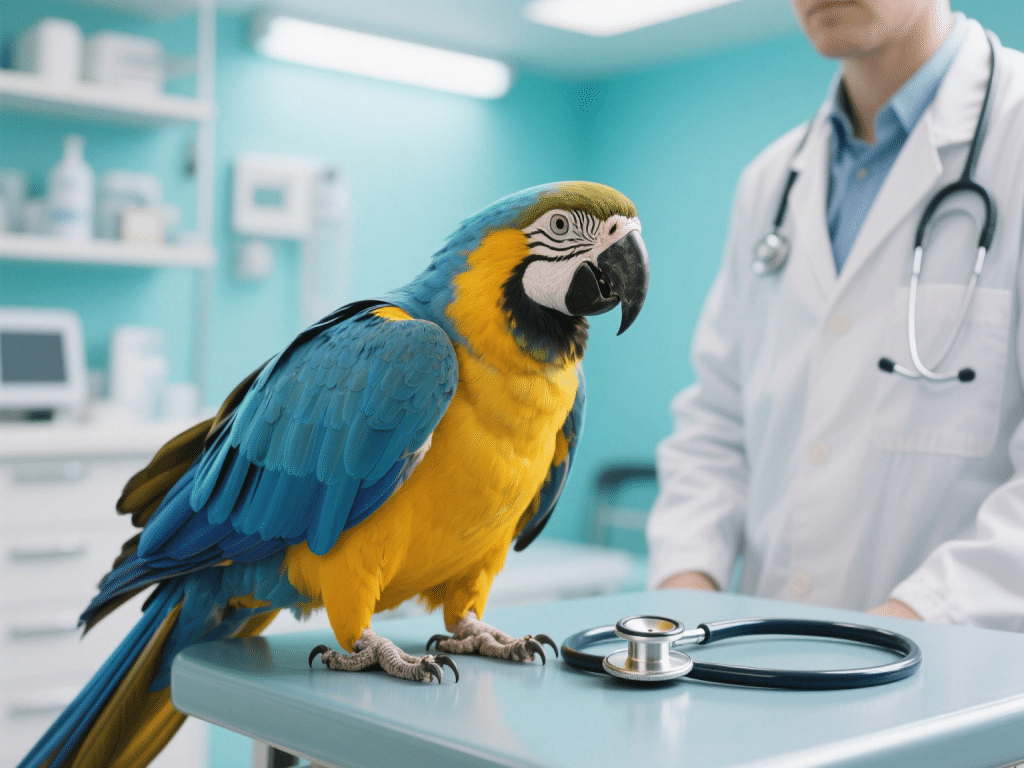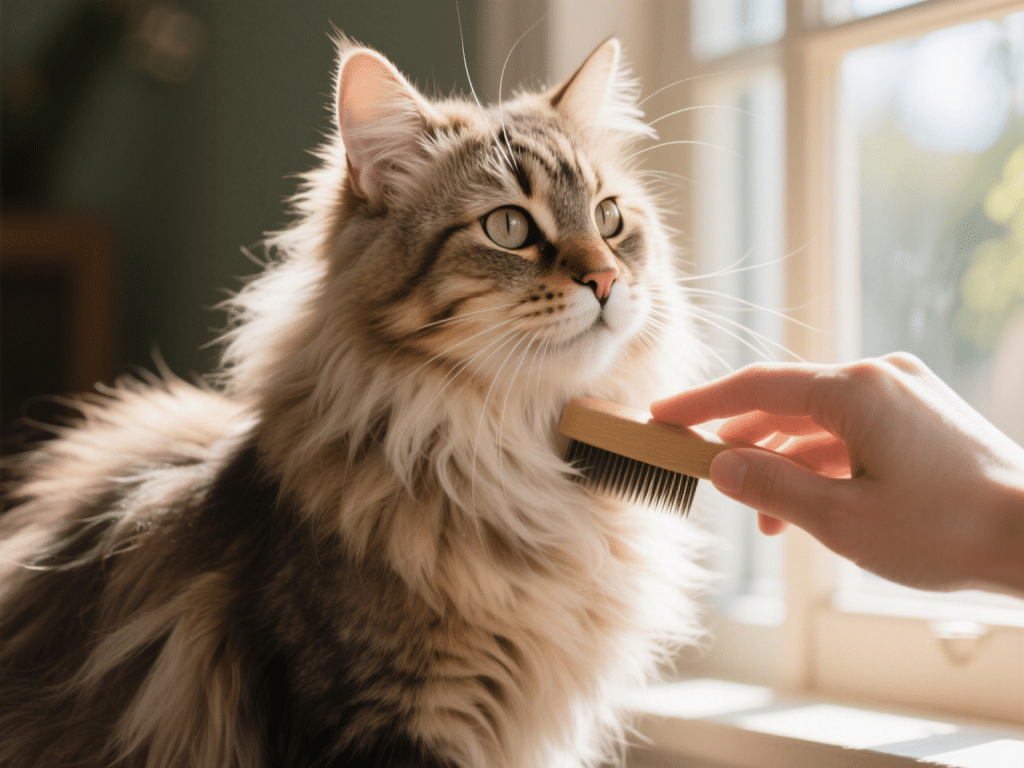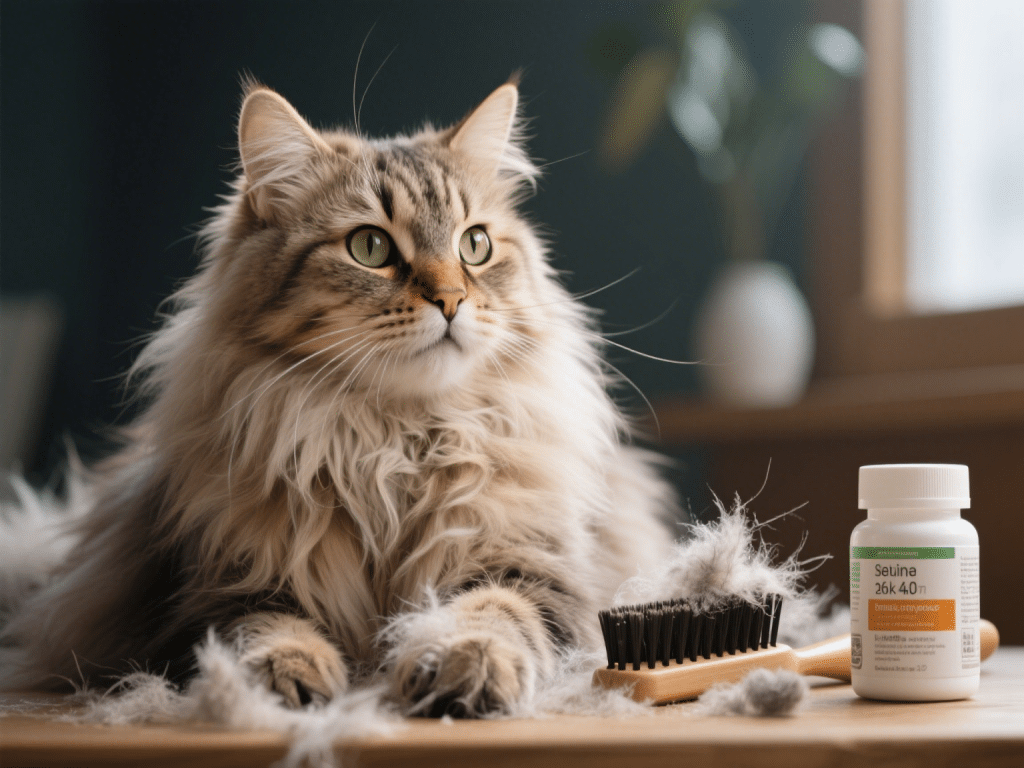
Pet birds are prone to a range of diseases—from nutritional imbalances to respiratory infections. Early detection and prevention dramatically improve outcomes. Drawing on decades of exotic‑animal practice, I’ve compiled a comprehensive health checklist, covering housing hygiene, dietary safeguards, and preventative veterinary care. By integrating this guide into your routine, you’ll empower yourself to spot subtle warning signs and take swift, effective action.
1. Nutrition‑Related Disorders
Conditions: Obesity, fatty liver disease, vitamin deficiencies
Prevention:
Follow the balanced diet plan from Article 7: high‑quality pellets, diverse fresh produce, controlled treats.
Supplement calcium with cuttlebone; monitor pellet brand rotations to avoid nutrient gaps.
Weigh weekly; a 5% weight change over two weeks warrants dietary adjustment or vet consultation.
2. Respiratory Infections
Conditions: Psittacosis, aspergillosis, bacterial pneumonia
Prevention:
Maintain humidity between 40–60%; use a hygrometer.
Avoid drafts and aerosol sprays near cages.
Disinfect perches and toys weekly with bird‑safe disinfectant (quaternary ammonium compounds).
Observe breathing rate: >40 breaths per minute at rest indicates potential infection.
3. Parasitic Infestations
Conditions: Feather mites, lice, internal worms
Prevention:
Monthly cage cleanings; rotate toys through hot‑water soaking.
Use preventative spot‑on treatments prescribed by an avian vet every 6–8 weeks.
Offer diatomaceous earth dust baths in a shallow dish, ensuring it’s food‑grade and clump‑free.
4. Beak and Feather Disease
Condition: Psittacine beak and feather disease virus (PBFD)
Prevention:
Quarantine new birds for 30 days with regular vet screenings (PCR tests).
Use disposable gloves and dedicated cleaning tools to prevent cross‑contamination.
Monitor feather quality: sloughing or malformed feathers signal immediate vet attention.
5. Gastrointestinal Issues
Conditions: Proventricular dilatation disease, bacterial enteritis
Prevention:
Ensure constant access to clean, fresh water; change water twice daily.
Rotate pellet brands biannually to prevent mold toxins.
Observe droppings daily: consistency, color, and urate morphology indicate digestive health.
6. Regular Veterinary Care
Annual Exams: Comprehensive physical, blood panel, and droppings cytology.
Vaccinations: Where available (e.g., Newcastle disease in poultry mixes).
Emergency Protocol: Prepare an avian first‑aid kit—styptic powder, saline solution, syringe for fluid therapy.
7. Owner Monitoring and Record‑Keeping
Maintain a Health Journal: Log weight, droppings notes, behavioral observations, and environmental changes.
Photograph feathers and suspect areas weekly to detect subtle changes over time.
Schedule biannual cage deep‑cleans and veterinary wellness checks.
By rigorously implementing these preventative measures and maintaining vigilant daily monitoring, you’ll minimize your bird’s risk of disease and maximize their longevity. A proactive approach—combining optimized nutrition, environmental management, and professional veterinary support—ensures your feathered friend thrives in robust health and vibrant vitality.









Comments on " Preventing Common Avian Diseases: A Comprehensive Health Checklist" :